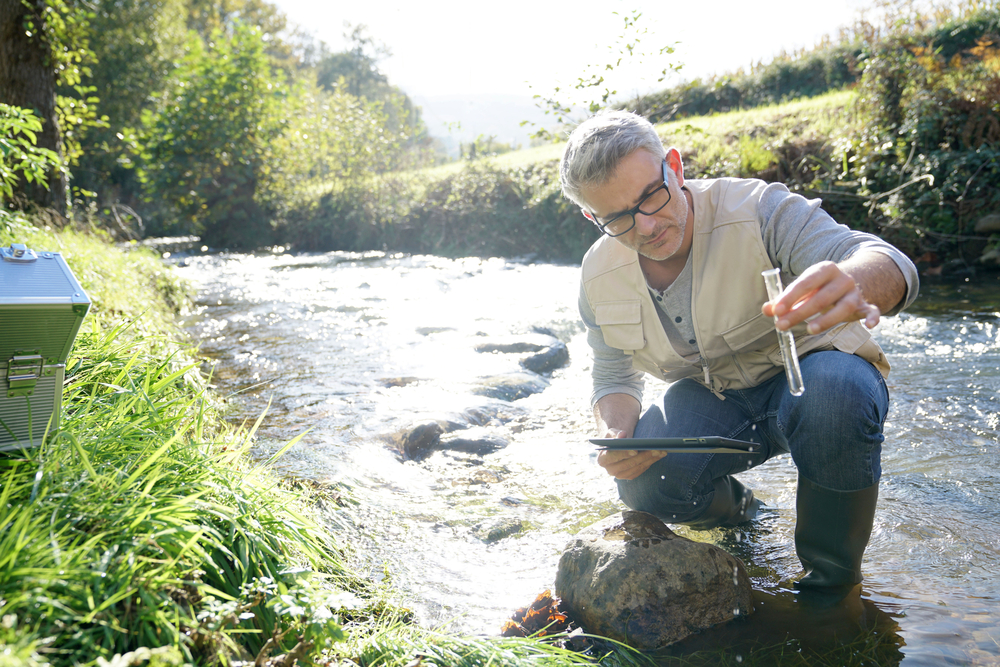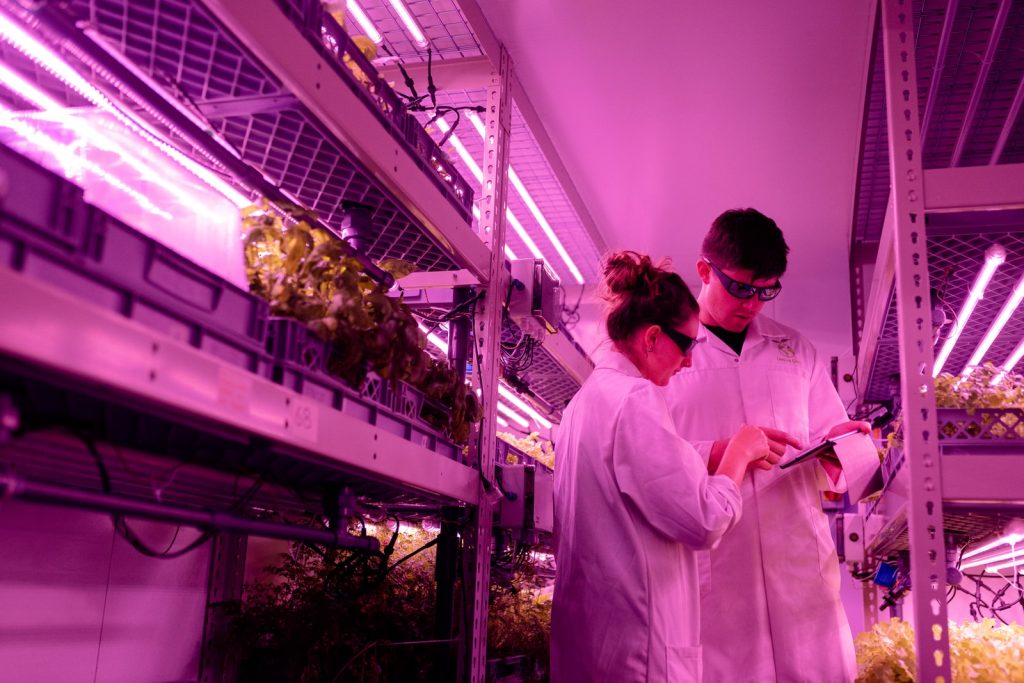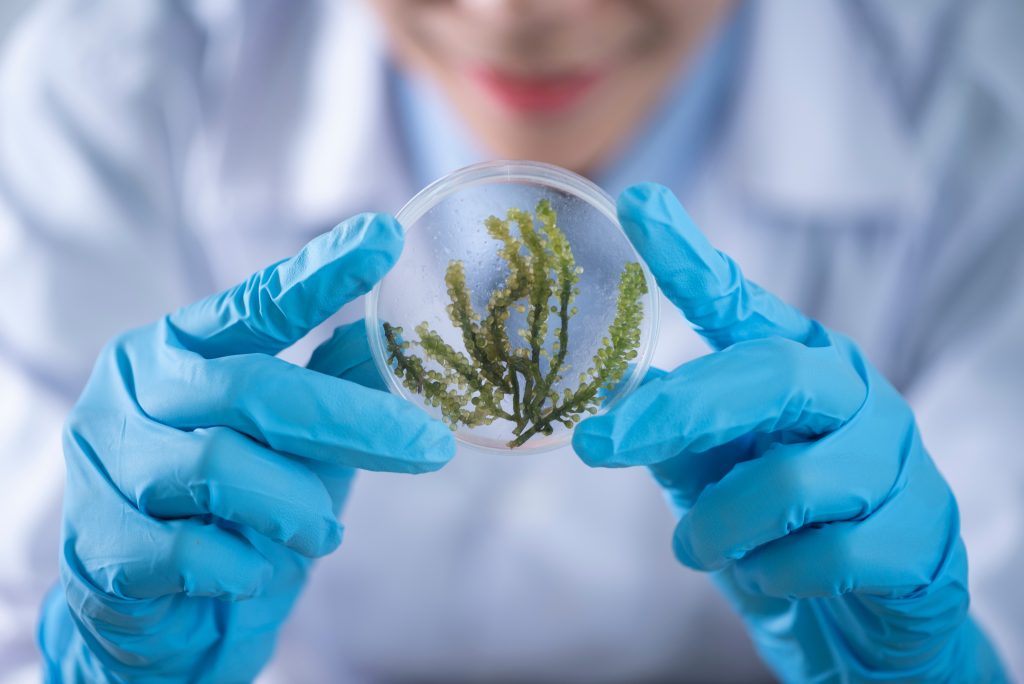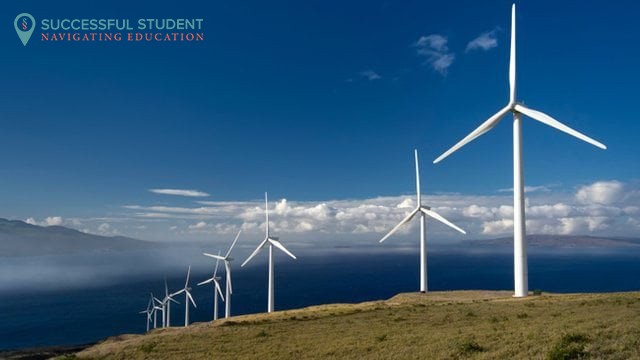In light of the increasing efforts of businesses, governments, and academia to be conscious of the environment, careers in the environmental science field are becoming increasingly significant and in-demand. As a prospective student researching scientific careers in environmental science, there can be a wide range of potential career opportunities.

This article provides insight into environmental science careers and their usual degree requirements. The design of this research is to make sense of education requirements of public and private careers in environmental science - to inform prospective students of academic and professional options.
The jobs below are a few of the environmental science fields in which graduates may potentially pursue careers.
Environmental science is a broad, interdisciplinary field that combines various scientific disciplines such as biology, geography, chemistry, hydrology, geology, and physics to better understand the environment and solve environmental problems.
An environmental scientist will often use critical thinking, problem-solving, conduct field research, and help solve environmental issues facing the natural world and human health.
As you navigate through researching career options in environmental science and what they involve, it's perhaps helpful to keep in mind whether you want to work for the government or for private industry.
We have done the research to provide insights into the skills and education required for these environmental sciences. Often the same requirements apply to positions within public or private industries.
Environmental Science Careers - A Guide for Students
1. Natural Sciences Managers

Natural Sciences Managers are supervisors of other environmental scientists, which might include managing biologists, geoscientists, seismologists, volcanologists, and other fields.
They can lead research teams and direct research projects for the federal government, local government agencies, or for private commercial interests. This work can be done locally or on a global scale to face various environmental challenges.
They manage research and development of the sciences and set their goals and agendas. A bachelor's degree is the typical minimum degree required.
Natural Sciences Managers earn an average median salary of $137,900, according to the BLS. The growth rate is projected to be 6%, adding 4,600 new positions over the next ten years.
2. Environmental Scientists

In broad terms, Environmental scientists study the natural world and the effects of human activity on the environment. They may be tasked with researching to identify particular environmental problems and help develop solutions.
An environmental scientist can be instrumental in conducting research, analyzing data, and creating reports to aid in the development of environmental policies and regulations, for example. This may involve working with lawmakers and policy advisors, providing information needed to make better informed decisions about environmental issues.
Environmental scientists work potentially in a variety of settings, including governments, non-profit organizations, consulting firms, businesses, and academic institutions.
Environmental Scientists and Specialists earn an average median salary of $76,530 per year, according to the Bureau of Labor Statistics (BLS). The projected job growth rate is 5%, adding 3,800 new positions in the coming ten years.
The minimum environmental education requirement is often undergraduate degrees, such as a bachelor's in environmental science degree or related degree.
3. Environmental Health Specialists

Environmental Health Specialists concentrate on the protection of public health by identifying, analyzing, and addressing environmental threats. This work could involve everything from investigating pollution sources to educating the community on health risks and ways of preventing them.
According to ZipRecruiter, Registered Environmental Health Specialists earn an average annual median salary of $60,185. A degree in environmental science is the usual minimum degree required.
There are degrees in environmental science that have Environmental Health and Safety Specialist as specialization options. For example, the University of Washington offers the Bachelor of Science in Environmental Public Health program.
4. Environmental Engineers

For those who excel at problem-solving and enjoy research, a career as an Environmental Engineer could be the prudent choice.
These engineers work to develop solutions to environmental problems using the principles of engineering, combined with environmental sciences, such as soil science, biology, and chemistry.
Working in the public or private sectors, this can involve projects focusing on recycling, safety regulations, waste disposal, public health, and water and air pollution control.
Environmental Engineers earn an average annual salary of $96,820, with a projected job growth rate of 4%, adding 1,800 new jobs over the next decade, according to the BLS.
A bachelor's degree is often the minimum required degree. In this role, graduates would use their knowledge of environmental science to design and implement solutions to environmental problems, such as pollution control.
5. Environmental Planners

In this role, graduates might work on creating policies and plans for land development while taking into account environmental, economic, and social issues. Responsibilities can include conducting impact assessments, developing environmental policies, and ensuring compliance with environmental laws and regulations.
Environmental planners are professionals who work to ensure that development projects are carried out in a sustainable and environmentally responsible manner. They use their knowledge of environmental science, land use, and policy to evaluate proposed projects and make recommendations to minimize their impact on the environment.
To become an environmental planner, the typical degree is a bachelor's degree in environmental science, urban planning, or related fields. Some employers may prefer candidates with a master's degree with relevant work experience. Environmental planners must also have analytical and communication skills, as well as an understanding of environmental regulations and policies.
6. Geographers

Geographers study the Earth's physical features, such as mountains, rivers, and climate patterns. They also examine how humans interact with the environment and how the environment affects humans. Geographers use geographic information systems and global positioning systems to study the earth and its features.
Geographers use a variety of tools and technologies, such as geographic information systems (GIS), to collect and analyze data. They may work for governments, non-profit organizations, or private companies.
Geographers may specialize in a particular area, such as cultural geography, economic geography, or physical geography. Cultural geographers study how human culture and behavior vary across different regions of the world.
Economic geographers analyze how economic activities, such as trade and industry, are influenced by geographic factors. Physical geographers focus on the Earth's physical processes, such as climate change and natural disasters.
Geographers earn an average median salary of $85,220 per year, according to the Bureau of Labor Statistics.
7. Geoscientists

Geoscientists are professionals who study the physical aspects of the Earth. They use their knowledge of geology, physics, chemistry, and biology to understand how the Earth works and how it has changed over time. It is a multidisciplinary field. As such, Geoscientists may often be able to work in a variety of fields, including energy exploration, environmental protection, and natural resource management.
According to the Bureau of Labor Statistics (BLS), Geoscientists earn $83,680 as the average median salary per year. The growth rate is predicted to be 5%, adding 24,900 new positions over the next ten years. A minimum of a bachelor's degree is often required to work as a Geoscientist.
8. Environmental Consulting

Environmental Consulting is a popular choice for many environmental science graduates. Consultants work with companies to develop strategies for managing environmental concerns and compliance with environmental laws and regulations. They may also offer solutions to help companies reduce their environmental impact.
These consultants may work on a variety of projects, including pollution prevention and assess environmental impacts. They may also provide training and education to clients, such as businesses, on environmental issues and best practices in safety regulations.
They may work for consulting firms, governmental agencies, or as independent contractors. They may specialize in a particular area of environmental science, such as air quality, water quality, or hazardous waste management. They may also work with a variety of clients, including industrial facilities or construction companies.
To become an Environmental Consultant, a bachelor's degree in environmental science, biology, chemistry, or a related field is usually required. Some employers may also require a master's degree, work experience, or professional certification. Consultants should be skilled at problem solving and communication. It's part of the duties of the position to be up-to-date on environmental regulations and industry trends.
Environmental Consultants earn an average salary of $67,124 per year, with the highest earners making $111,295 per year, according to Indeed.com.
9. Environmental Science Teacher

An environmental science teacher is someone who teaches environmental science at either public or private high schools, or at colleges and universities, or at environmental think tanks.
These teachers are responsible for teaching students on the various aspects of the environment, which can include subjects such as ecology, conservation, sustainability, and renewable energy. They may design and administer lesson plans, assignments and assessments, and provide feedback to students on their progress.
Environmental science teachers may also research and publish their findings in publications such as academic journals. They may participate in professional development opportunities to stay up-to-date on the latest environment research.
Environmental science teachers usually need a bachelor's degree in environmental science or a related field to teach at the high school level. However, some schools may require a master's degree or higher. High school teachers earn an average median salary of $61,820 per year, according to the BLS.
Environmental science teachers at the collegiate level usually need a minimum of a master's degree in environmental science or a related field. Some institutions may require a doctoral degree for tenure-track positions or for teaching at the graduate level. The average salary for environmental science professors is $62,839, according to ZipRecruiter.com.
10. Environmental Impact Analysts

This is another potential role in the private sector. These professionals assess the impact of a company or agency's activities in the environment, giving data that informs business decisions. They might evaluate the effects of a construction project, a new product, or even the company's overall operations.
These analysts are professionals who assess the potential impact of proposed projects or developments on the environment. They evaluate the potential effects on air, water, soil, and wildlife, and other factors.
They use a variety of tools and techniques to gather and analyze data, such as computer modeling, field studies, and laboratory testing. They then use this information to develop recommendations for how to minimize negative environmental impacts.
These analysts can work in a variety of industries, including governmental bodies, consulting firms, and businesses. They may also work on a consulting basis, giving their guidance to clients on a project-by-project basis.
These analysts have an important part in making sure that new developments and projects are sustainable and do not harm the environment. They help to balance economic development with environmental protection. The usual minimum education requirement is an Environmental Science degree or a related field.
11. Environmental Managers

They play a key part in developing and implementing a company's environmental policies and ensuring that the company is in compliance with environmental laws and regulations. This role often involves coordinating teams and communicating with various stakeholders.
According to Indeed.com, Environmental Managers earn an average salary of $84,979 per year, with an upper end average of $127,267 per year. The minimum education requirement is often a bachelor's in environmental science degree or a related field.
12. Conservation Biologists

Conservation biology is a field of study that focuses on the preservation and protection of biodiversity in the world. Conservation biologists work to understand the ecological processes that support life on Earth and develop strategies to protect and restore ecosystems.
As a conservation biologist, you may work in a variety of settings, including governments, non-profit organizations, and private companies.
Conservation biologists may work on a range of projects, from studying the behavior of endangered species to developing plans for habitat restoration. Some conservation biologists work in the field, collecting data and conducting experiments, while others work in offices, analyzing data and using an environmental science laboratory.
Graduates may also work with other professionals, such as ecologists, wildlife biologists, and environmental scientists, to develop comprehensive conservation strategies.
The salary of a conservation biologist can vary depending on factors such as experience, location, and employer. According to the Bureau of Labor Statistics, the median annual salary for zoologists and wildlife biologists, which includes conservation biologists, is $64,650.
13. Conservation Scientists and Foresters

Conservation scientists and foresters are responsible for managing and protecting our natural resources, such as forests, parks, and wildlife habitats. They work so that these areas are preserved for future generations, and that they are used in a lasting and sustainable way.
Conservation scientists and foresters develop and implement plans to manage these resources. This may involve conducting research to determine the best ways to protect and preserve ecosystems, as well as developing strategies to mitigate the impact of human activities on these ecosystems.
Conservation scientists and foresters may work for government agencies, non-profit organizations, or private companies. They may also work in a variety of settings, including forests, parks, and wildlife habitats.
Some conservation scientists and foresters may specialize in a particular area, such as wildlife management or forest ecology. This can include working in national parks.
Conservation Scientists and Foresters earn an average median salary of $63,750 each year. This career category is expected to grow 5%, adding 1,800 new positions in the next ten years.
14. Hydrologists

Fundamentally, Hydrologists are scientists who study water. They investigate the properties, distribution, and circulation of water on Earth. This includes studying the movement of water through the soil, rocks, and even in our atmosphere.
Hydrologists also study the impact of human activities on water resources and environmental contamination, making sure that proper environmental standards are being upheld in our waterways. They can use a variety of tools and techniques in their scientific research. They collect data and conduct data analysis, such as satellite imagery, computer models, and field measurements.
Hydrologists earn an average median salary of $84,030, according to the Bureau of Labor Statistics. The usual minimum education requirement is a bachelor's in environmental science degree or related subjects. Some employers may want applicants to have a master's degree.
Hydrologists study how water moves and behaves in and on the earth. They can work for many different industries, including governmental offices, private consulting firms,
15. Environmental Scientist: Climate Change Mitigation and Adaptation Specialists

Environmental scientists specializing in climate change mitigation and adaptation focus on developing and implementing strategies to reduce greenhouse gas emissions and adapt to changes already occurring.
They work closely with government agencies, businesses, and non-profit organizations to develop policies and practices.
A Climate Change Mitigation and Adaptation Specialist is a professional who works to reduce the negative impacts of climate change on the environment and society. For example, they may be responsible for developing and implementing strategies to mitigate greenhouse gas emissions in order to adapt to a changing climate.
This can involve working with various stakeholders, including governmental agencies, businesses, and communities, to identify and implement solutions that reduce carbon emissions and increase resilience to climate impacts.
These Specialists may work in a variety of industries, including governmental bodies, non-profit organizations, consulting firms, and research institutions. They may focus on a specific domain, such as energy, transportation, or agriculture, or work on broader issues related to the climate and sustainability.
Specific job duties may include research and analysis to identify climate risks and opportunities, developing and implementing climate action plans, providing technical assistance and training to stakeholders, and monitoring and evaluating the effectiveness of mitigation and adaptation strategies.
A background in environmental science, climate science, engineering, or a related field is typically required for this career. The usual minimum requirement for employment is an undergraduate environmental science degree or degree in a related subject.
16. Renewable Energy Engineer

The transition from fossil fuels to renewable sources of energy is important in minimizing human environmental impact. We need sources of energy that are not exhaustible, but rather renewable over time.
Renewable Energy Engineers research and develop methods and strategies for creating and implementing renewable energy technologies, such as solar, wind, and hydropower. They may also evaluate the environmental impact of these technologies and work to optimize their efficiency and sustainability.
Renewable energy engineers may work on a variety of projects, from designing small-scale residential solar systems to developing large-scale wind farms. They use their knowledge of engineering principles and renewable energy technologies to create innovative solutions to meet the energy needs of communities and businesses.
This can include working with or for wind turbine manufacturers and solar companies, for example. Renewable Energy Engineers usually need a minimum of a bachelor's degree. These engineers earn an average salary between $74,698 and $100,994 per year, according to Salary.com.
17. Sustainable Resource Management
The efficient and sustainable use of natural resources is another area of focus among governments, non-profits, and businesses. Environmental scientists in the sustainable resource management field work to conserve resources, reduce waste, and promote sustainable materials and practices.
Their work often involves conducting environment impact assessments, developing resource management plans, and advising on sustainable business practices. The typical minimum requirement for employment is an undergraduate environmental science degree.
18. Sustainability Consultants

They work with organizations to develop, implement, and monitor strategies that promote environmental sustainability. They may also conduct environmental audits and train employees on sustainable business practices.
19. Sustainable Development Project Managers
These professionals oversee projects that promote sustainable development. Their duties are to make sure that every stage of a project aligns with environmental regulations and sustainability goals.
Green Energy Careers
The green energy sector is a dynamic and growing field that offers a wealth of opportunities for environmental science graduates. This sector focuses on producing energy from renewable and sustainable sources such as the wind, sun, and water.
Renewable Energy Consultants: These professionals advise companies and governments on renewable energy technologies, policies, and projects. They may also work on the design and implementation of renewable energy systems.
Energy Efficiency Engineers: They work to reduce energy use and increase energy efficiency in building design and construction, transportation, and manufacturing processes.
This career guide is intended to provide guidance for prospective environmental science students to be informed about environmental science jobs, and related environmental science degree options. Often for these positions, the minimum education required is an environmental science degree or a related degree.
Environmental Science majors have many degree options at colleges and universities across the nation for graduate studies, if one wants to pursue further education. Environmental science students can attend on-campus or take programs online at reputable accredited colleges and universities.
When researching an environmental science degree, it can be helpful to decide if there are any specializations that a student may want to study. This can help inform the environmental science degree choice.
Government and Private Industry jobs
An environmental science degree can potentially create opportunities in the public and private sectors. When considering environmental science jobs, a broad question to think about is whether you want to work in the public or private sector.
Federal or local governments can be a helpful resource, given that they may offer relevant positions. Government agencies at the local and national level may offer a variety of career opportunities that can potentially influence public policy and effect change.
Local and federal governments have laws and regulations in place to monitor and manage the environment, and there are assessment and enforcement roles needed to enact these laws and regulations.
Employers in the public sector:
Environmental scientists are in high demand in a variety of public agencies. Public environmental science positions include government agencies such as:
- Environmental Protection Agency (EPA)
- National Oceanic and Atmospheric Administration (NOAA)
- U.S. Department of Energy (DOE)
- U.S. Department of the Interior
The U.S. Department of the Interior usually offers a wide range of job openings in environmental science and related industries, such as Architecture, Archaeology, Assistant Fire Management Officer, and others. There are many career paths that are relevant to the environment that don't include the moniker of "environmental" in the name, such as Geologist, Entomologist, Biologist, Seismologist. Volcanologist, and others.
It's important to remember that these are just a few of the many possibilities within the public sector for a career in environmental science. Regardless of the specific job title, all of these roles can offer the opportunity to make a direct impact on environmental policy and public wellbeing while providing a stable career path.
Employers in the Private Sector
Many prominent companies are increasingly prioritizing sustainable practices and actively seeking environmental science professionals.
These include:
- Waste Management, Inc.: This company is North America's leading provider of comprehensive management of waste and environmental services, and they frequently hire environmental science graduates.
- Environmental Resources Management (ERM): As one of the world's leading environmental consulting firms, ERM offers numerous opportunities for environmental scientists.
- Tetra Tech, Inc.: A leading provider of consulting and engineering services, Tetra Tech is involved in various sectors, including water, environment, infrastructure, resource management, and international development.
Many private companies hire environmental scientists to help them comply with environmental regulations and reduce their environmental impacts. Some of the top private companies that hire environmental scientists include engineering firms like AECOM and CH2M Hill, as well as energy companies like BP and ExxonMobil.
Consulting firms like ERM and Deloitte also hire environmental scientists to help their clients navigate complex environmental regulations and develop sustainable business practices.
Non-profit organizations like the World Wildlife Fund and The Nature Conservancy also hire environmental scientists to help them protect and preserve natural resources.
Environmental science careers in the private sector offer a chance to play a role in shaping a greener future. As companies continue to adopt sustainable practices, the demand for environmental science expertise is expected to grow. The minimum degree required to work for these entities is often a bachelor's in environmental science degree or related degrees.
Environmental science jobs can be numerous in businesses, non-profits, educational spaces, and think tanks. Many corporations are investing heavily in sustainable practices and need skilled professionals to guide them. Whether your interest lies in consulting, research, environmental data or management, there's a potential wealth of environmental science career options after graduation.
Emerging Trends in Environmental Science Careers
The field of environmental science is continually changing and updating in accordance with emerging needs and trends. As we move into an era defined by climate change, sustainability, and environmental and corporate consciousness, the demand for skilled environmental scientists continues to rise. Graduates with an environmental science degree can potentially have a variety of career opportunities.
Sustainable Development
Sustainable development is an integral component of environmental science that focuses on the long-term health of our planet. It incorporates strategies that promote economic growth without depleting natural resources or causing severe environmental damage. Careers in sustainable development range from policy creation to project management and often require a strong understanding of both the natural and social sciences.
Job Outlook for Environmental Science programs graduates
As the consciousness for environmental preservation heightens across the globe, the need for environmental science professionals is projected to see a significant surge in the coming years. With a degree in environmental science, you will not only have the potential for a rewarding career but can also expect a favorable job outlook in the future.
According to the U.S. Bureau of Labor Statistics, employment in the environmental science field is expected to grow 11% from 2020 to 2030, a rate much faster than the average for all occupations. This growth is largely driven by heightened public interest in the hazards facing the environment, as well as the increasing demands placed on the environment by population growth.
Job prospects are particularly strong in these fields:
Environmental Consulting: Companies of all sizes are increasingly seeking the expertise of environmental consultants to ensure they are compliant with new and existing environmental regulations.
Renewable Energy: As the world transitions away from fossil fuels, there is a growing need for experts in renewable energy sources, like wind and solar power.
Conservation Science: With the increasing threats to biodiversity, conservation scientists are in high demand to help protect the planet's species and ecosystems.
Climate Change Analysis: Climate change analysts study effects of changing climate and propose solutions to mitigate its impact. Their importance is growing as the global community ramps up its efforts to combat climate change.
While a bachelor's degree in environmental science can potentially open many doors, it's worth mentioning that those with a master's degree often have better prospects, with opportunities for higher positions - and better pay. According to PayScale, the average salary for environmental scientists with a master's degree is around 15% higher than those with a bachelor's degree.
These are just a few of the many areas where environmental scientists can make a significant contribution. As the world continues to grapple with the realities of climate change and environmental degradation, the need for skilled environmental scientists will only become more necessary. Pursuing a degree in environmental science can possibly lead to professional opportunities that are close to being future proof.
By choosing a career in environmental science, you're choosing to use your real world skills to address some challenges in our natural environment.
Environmental Science Degree Options

Environmental science programs are available on campus and online at accredited colleges and universities across the U.S. These include undergraduate and graduate programs. There are many specialization options open to environmental science majors, which can include:
- Environmental Health and Safety
- Environmental Engineering
- Environmental Law
- Environmental Management
- Environmental Chemistry
- Geoscience
- Environmental Sustainability
- Data Analytics
- Natural Resources and Conservation
- Sustainability and Environmental Compliance
There are many Environmental science careers potentially available, and as such there are many concentrations and specializations available to educate environmental professionals. To become an environmental lawyer, a law degree is required.
Professional Organizations
Professional organizations are a great way for scientists to network with other professionals in their field(s).
One of the most important organizations is the National Association of Environmental Professionals (NAEP). This organization provides opportunities for environmental professionals to connect, share knowledge, and stay up-to-date on the latest trends and issues in the field.
The Ecological Society of America (ESA) is an organization focused on promoting ecological science and education, and provides a forum for scientists to share their research and ideas.
The American Institute of Biological Sciences (AIBS) is a professional organization that represents biologists and other professionals in the life sciences. While not specifically focused on environmental science, AIBS provides resources and networking opportunities for professionals in biology.
The Association for Environmental Studies and Sciences (AESS) is a professional organization that focuses specifically on environmental studies and sciences. This organization provides a forum for professionals to share their research and ideas, and also offers resources and networking opportunities for members.
More resources:
- The Best Environmental Science Schools
- The Best Sustainable and Renewable Energy Colleges
- The Best STEM Degrees for Careers of the Future
- The Best Degrees for Generation Z
- The 20 Best Online Degrees to get for Careers
- The Best Jobs for the Future
- The Best Universities Solving Climate Change
- The 10 Best Earth Sciences Graduate Programs
- The 10 Best Earth Sciences Undergraduate Programs
- The Best Online Agribusiness Programs
- The Best Atmospheric Sciences & Meteorology Graduate Programs